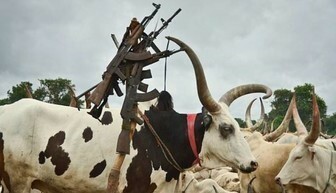The head of UNMISS on Thursday said the unregulated migration of cattle remains a driver of communal conflict and violence in South Sudan.
Nicholas Haysom was addressing the South Sudan National Livestock Conference which was attended by Vice President James Wani Igga, a host of ministers, state governors, and parliamentarians.
The UNMISS chief said in the second quarter of 2022, his Mission’s Human Rights Division reported that community-based militias and self-defense groups, whose main objective is to protect herds of cattle from external attack, were in fact responsible for 60 percent of civilian deaths.
“Unregulated transhumance—the flow of cattle through migration routes—also continues to be a major driver of communal conflict in South Sudan,” he said. “It is not just a domestic phenomenon, but one that crosses regional borders and invokes sensitive issues of ethnic politics, land ownership, borders, grazing rights, and access to water.”
“In all these scenarios, the proliferation of weapons, lack of economic livelihoods, and climate change are contributing factors,” he added.
Haysom said the manipulation of local-level conflict by national political actors, which adds fuel to the fire, cannot be ignored.
He added that prolonged insecurity has led to the erosion of traditional, local, and state authorities.
“And in the absence of dispute resolution, criminal accountability, and justice mechanisms, a culture of impunity has taken root,” he warned. “This sparks vicious cycles of counter raids and retaliatory attacks that, once unleashed, are difficult to quell.”
He said livestock plays a central role in the fabric of life in the country and that it has been vital to the economy, culture, and social structure of the people of South Sudan even before independence.
“And this is what makes it (livestock) a valuable form of currency and, therefore, both an incentive for both cooperation as well as an incentive for conflict among communities,” he said. “But whereas cattle raids were once cyclical, small scale, and mostly localized, the nature of this consequential violence has changed.”
According to the UN boss, the consequences of cattle-related violence on inter-communal harmony are devastating and long-lasting, setting up cycles that are difficult to break and undermine progress this country has made towards peace.
“This is why cattle raids and migration-related conflict are an immediate protection and human rights concern for the United Nations here,” he said. “More broadly, it is an obstacle to the full implementation of the Revitalized Peace Agreement. But the root causes go deep and, therefore, invoke a broader, collective responsibility to address the problem.”
“Solutions must go beyond retaliatory dynamics at the surface and look into broader issues of accountability, reconciliation, political inclusion, state effectiveness, development, and the proliferation of arms among the civilian population,” he added.
Haysom said UNMISS is providing technical assistance to review draft legislations on livestock management in South Sudan, including the Livestock Bill, Animal Production Bill, Veterinary Bill, Meat Marketing Bill, and Land Act and Policy.
“We hope these bills will be comprehensively reviewed after this conference,” he said. “Let me conclude by re-stating that we cannot ignore the nexus between political conflict and its actors: cattle keepers, farmers, and armed youth. Much of today’s cattle-related conflicts are an extension of politics by other means.”




